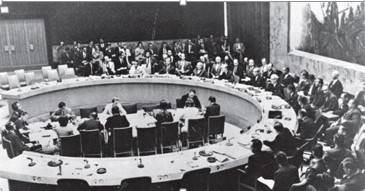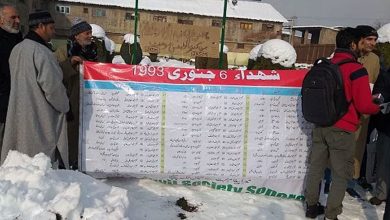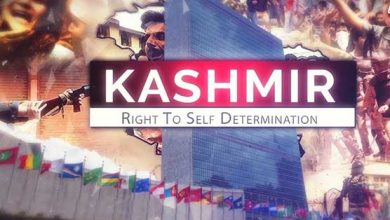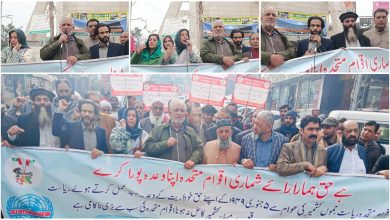Kashmir’s Struggle: A Test of Global Commitment to Human Rights
Noor ul ain Dabeer Kazmi

 Located in the heart of the Himalayas, Jammu and Kashmir covers 84,471 square miles and is bordered by India, Pakistan, China, and Afghanistan. The Kashmir Valley, a part of this region, is 85 miles long and 25 miles wide. Known as a “Paradise on Earth,” its stunning and peaceful beauty has amazed people of all backgrounds for centuries.
Located in the heart of the Himalayas, Jammu and Kashmir covers 84,471 square miles and is bordered by India, Pakistan, China, and Afghanistan. The Kashmir Valley, a part of this region, is 85 miles long and 25 miles wide. Known as a “Paradise on Earth,” its stunning and peaceful beauty has amazed people of all backgrounds for centuries.
However, the people of Kashmir have faced a long history of suffering. They have lived through poverty and oppression, as noted by the scholar Vincent Smith, who said, “Few places in the world have been as unlucky as Kashmir when it comes to government.”
The Kashmir conflict, a longstanding dispute between Pakistan and India, has shaped the region’s tensions since 1947 and remains a key issue on the United Nations’ agenda. For Pakistan, it is not just a territorial matter but a humanitarian crisis affecting over million’s of Kashmiris. Resolving this issue is essential to ensuring peace and dignity for the people of Kashmir.
Despite being viewed by some as a complicated matter, the issue is, at its heart, about the Kashmiri people’s right to self-determination, as affirmed by UN resolutions and international agreements.
On January 5, 1949, the United Nations Commission for India and Pakistan (UNCIP) adopted a resolution underscoring the Kashmiri people’s right to decide their future through a free and impartial plebiscite. Although non-binding, this resolution remains central to discussions on Kashmir’s status, reaffirming the principle that the people of Jammu and Kashmir should have the opportunity to determine their destiny.
The United nations Security Council has passed several resolutions affirming the right of the people of Kashmir to determine their own future. These resolutions clearly state that the fate of Jammu and Kashmir must be decided based on the will of its people, expressed through a free and fair plebiscite conducted under the supervision of the United Nations.
India initially agreed to hold a plebiscite in Jammu and Kashmir and made over 40 commitments to this effect. However, these promises were insincere and seemed aimed at buying time. India only engaged in talks on Kashmir under international pressure, using them as a delaying tactic. Despite three wars between Pakistan and India over Kashmir, India’s promises to resolve the issue have never been fulfilled.
The prolonged delay In implementing UN resolutions on Kashmir, repeated sham elections in the region, and the global wave of democracy in the 1980s led to mass protests in Indian-Occupied Kashmir (IOK), with people demanding their right to self-determination. When India used force to suppress these protests, Kashmiris were driven to take up arms.
To crush the Kashmiris’ demand for freedom, India deployed over 700,000 soldiers with sweeping powers under harsh, Kashmir-specific laws. This military presence has caused immense suffering, with widespread human rights violations documented by groups like Amnesty International and Human Rights Watch.
Despite this, since October 27, 1947, when India took control of Jammu and Kashmir by force, it has taken various steps to tighten its hold over the region. On August 5, 2019, a major blow was dealt to the aspirations of the Kashmiri people when India revoked the special status of the region, splitting it into two Union Territories. This move disregarded its internationally recognized disputed status and further eroded the Kashmiris’ right to self-determination.
Since then, India has implemented policies aimed at altering the demographic makeup and political fabric of the region. These actions are seen as an attempt to marginalize the Kashmiri people and reduce them to a minority in their own homeland, stripping them of their identity, rights, and agency. For the people of Kashmir, this is not just a political conflict—it is a deeply personal struggle for dignity, freedom, and the right to shape their own future.
India, which is seeking a permanent seat on the UN Security Council, should remember the UN Security Council resolutions on Kashmir, which it has repeatedly ignored without consequence. Similarly, the international community must recognize its duty under the UN Charter to help resolve the Kashmir issue. If the UN could implement resolutions in countries like Iraq, Kosovo, and East Timor, why not in Kashmir?
The world is more connected now, and a regional conflict could spread globally, especially since both India and Pakistan are nuclear-armed. Therefore, the international community cannot ignore the suffering of the Kashmiri people, who are enduring immense hardship. It must act to stop the injustice they face at the hands of India. As Dr. Martin Luther King once said: “The ultimate tragedy is not the oppression and cruelty by the bad people, but the silence over that by the good people.”
Kashmir Day on 5 January reminds the world of its responsibility to uphold the rights of the Kashmiri people and seek a peaceful resolution to the conflict. This day highlights their suffering and the urgent need for a solution that respects their will. While international laws like the ICCPR and ICESCR recognize the right to self-determination, applying it to Kashmir has been complicated by politics and differing views on sovereignty. A lasting solution requires meaningful dialogue between India, Pakistan, and the Kashmiri people, guided by the principle of self-determination. Observing this day is a chance to focus on justice, peace, and the global responsibility to protect human rights.
–Noor ul ain Dabeer kazmi is a student of Peace and Conflict Studies from National Defence University and intern at Kashmir Institute of International Relations. *








